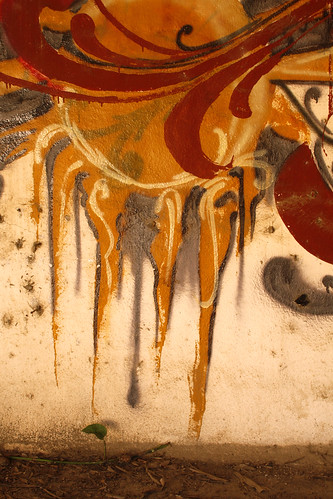 Good morning to you out there!
Good morning to you out there!
How is it where you are? I can hear a garbage collector somewhere out on the roads, but otherwise it’s a quiet Monday, outside of a few puppy-visits here at my desk. We’ve gotten so we can have her crate door open at night and she sleeps there, stays in bed and in the room with us. When I get up, she generally stays in bed for another hour or so, and then she starts making these little trips out to see me. I can make out a small dog-shaped shadow in the dark of the office door, and hear her wagging tail nicking against the doorframe.
~~ ~~ ~~ ~~ ~~
This morning, again, I am thinking about the work that hands can do, especially for we who are writers, and for we who are survivors of sexual trauma.
Our hands are holy things. I don’ t use that word, holy, lightly — we understand holy, these days, to mean sacred, godly, but there’s possible older meaning: “that must be preserved whole or intact, that cannot be transgressed or violated,” and … “health, happiness, good luck.”
That must be preserved whole or intact, that cannot be transgressed or violated.
This weekend I made bread four times — two soda breads, two stacks of chapatti. Whenever I make bread, I am connected to my mother, from whom I learned to bake. I am connected, through her, to her mother, and I am also connected to my father’s mother, who was a farm wife for much of her marriage and who baked in a little kitchen out in the middle of Nebraska cornfields.
What do I want to say about this. I was apart from my mother’s mother when she died, still under my stepfather’s control — we weren’t allowed much contact with any of our extended family, and I was away at college when she died. I didn’t go to her funeral. And I had a hard trusting that my father’s mother would be able to know me — that she would be able to accept me for who I was. She never showed me that she would do anything but that; still, I let my fear and shame keep me from her. I barely knew either of these women, had no relationship with them directly; I mostly knew them through my parents, who have their own struggles and filters. I did not know their hands — I have vague memories of their hands from when I was a child, and a sense of my father’s mother’s hand, which I held for awhile when she was dying.
So I talk to them, these foremothers, these my mother’s mother and my father’s mother, now when I’m baking. I say thank you for this knowledge. I am aware of the powerful thing I do when I bring together the flours, the liquids, when I shape the raw materials into bread. I am saying, acknowledging, that my hands can do more than harm, they can do more than hide in pockets, they can do more than hold a pen.
Our hands sometimes have to do awful things, hold terrible knowledge. There’s no way that I have found to erase this. But we can reconsecrate them. (That is, we can make them holy, remind ourselves that our hands can be inviolable, and, yes, that our deep and tender selves are inviolable.)
I have a scar on my right hand, my writing hand, that I created earlier this year when I broke a glass. It was during a difficult time, this breaking, and this tearing of my skin was also a tearing open of me. I didn’t want, anymore, what my hands had held, what my hands had been forced to do, what of my stepfather’s body my hands had known. I am tender with that scar now, and notice it, covered in dough, as I bring the soda bread together. It’s a jagged place just below my ring finger, a pink witness, a reminder of healing. I’m aware of my mother’s difficult hands over mine, my grandmothers’ hands and their own complicated holdings.
What a kind and powerful thing we do, allowing our hands to do good work after they have had to do rough work, after they have had to hold our horrors. I put my hands into my puppy’s fur, she lets me touch her with these hands, these very hands that have known how to do unnameable things, and in this way, she and I find ways to reconsecrate what has been misused. In the making of the bread, we reconsecrate, in pushing our hands into soil, holding a friend’s hand, allowing ourselves to get massage on our hands, holding a child’s head, pounding spices, bringing our bodies passionate joy — we reconsecrate. Writing, too, of course, can be part of the delicious and good work our hands can do.
That which has been desecrated can be made whole again, made intact. That’s the length and breadth of our resilience.
“The world breaks everyone, and afterward, some are strong at the broken places.” Ernest Hemingway
~~ ~~ ~~ ~~ ~~ ~~
What beautiful and tender things do you do with your hands? What about your character’s hands? Can you give yourself and them 1o minutes today? You might move into what difficult, terrible work your hands have had to do, but give space, too, as you can, to the tender work those hands do, too. Begin with “My hands have” (or Your/her/his/hir hands have…) and follow your writing wherever it seems to want you to go.
Thank you for your patience, your breath, your hands, your scars. Thank you for your resilience, your wisdom, and the way you hold others. Thank you thank you for your words.
